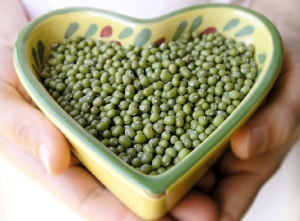10/07/2011
Soybean is an excellent food for diabetes.
It is easily digested and is one of the most nourishing and body building foods in the world.
It is especially good for growing children to aid growth and development.
Soybean has high lecithin content and is therefore excellent for mental fatigue and for protection against cholesterol deposits.
It has been claimed that lecithin lowers blood cholesterol thru emulsification of fats and is valuable against the development and hardening of the arteries and all the complications of the heart, brain, kidneys and eyes that follow.
Lecithin is a brain food, a tonic and energizer.It has been reported that diabetic patients were successfully treated with lecithin.
It has also been reported that lecithin is effective in treating psoriasis.
Prevents gall stones, when adequate lecithin is included in the diet.
Liquid lecithin application helps heal bed sores and persistent diaper rash.It is also reported to prevent pellagra, the disease marked by disturbances of the stomach and intestines, skin eruptions and many nervous symptoms such as melancholia.
Because of the high content of linoleic and linolenic acids (unsaturated fatty acids), this food is conducive to a healthy skin and corrects many cases of eczema.
The pure pressed oil is used for skin conditions, as it contain the natural and lecithin. Soybeans have about twenty times more alkali than milk.
Lecithin has the ability to increase the gamma globulin content of the blood . The gamma globulins are known to be associated with the natures protective force against the attack of various infections in the body, thus increasing immunity.




